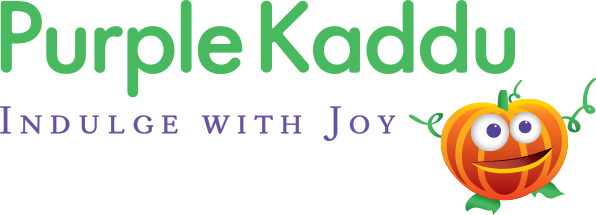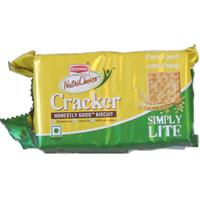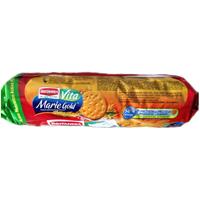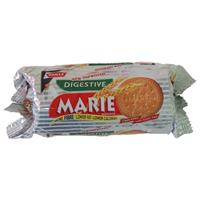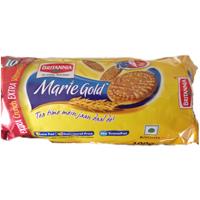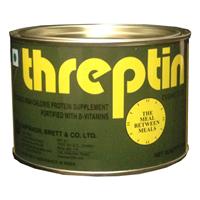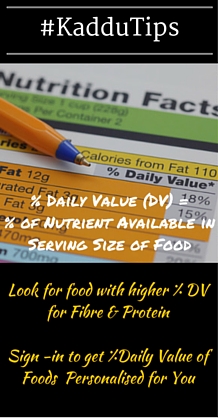
Britannia NutriChoice Cracker Simply Lite
Products in ‘Crackers-Salted Biscuits’ category range from 0.5 - 2.5

Current Product

- Food Sensitivity Alert - YeastYeasts, a form of fungi, are of many kinds some of which are used in the food industry in baking process and to make beer, cheese, whiskey and wine.Yeast is used in one of the following forms in the food industry: Active Yeast, Yeast Extract, Torula Yeast, Autolyzed Yeast, Yeast Nutrient, Yeast Food. People allergic to Yeast should avoid this product.All the forms besides Active Yeast are similar to MSG i.e. they contain free glutamate. People, allergic to MSG are also sometimes sensitive to some variants of Yeast and hence consume this product considering your food sensitivity.
- Is Simply LITE really light?Don't go by the Name of the product, read the nutrition label.The product name has the words 'Cracker Simply Lite' but gives 105 calories when typical serving size of 24 gms is consumed which is similar to many other biscuits.If you are looking to eat a cracker biscuit then yes this is the product for you but not if you looking to eat a low calorie biscuit.
- Low in Sugar does not mean Low in CaloriesGeneral belief is that a product labeled as "Sugar Free" or "Low in Sugar" or "No Added Sugar" can be consumed without care as it will not add kilos. Often Products that claim to be low in sugar may have significant Fat or Carbohydrate Content, thereby giving you the same amount of Calories as the original variant of the product. Read the Calories, Fat and Carbohydrate Content in the nutrition label of the product and consume accordingly.
- High in Saturated FatSaturated Fats are often termed as the Bad Fat as excess consumption of these can lead to increase in the production of high cholesterol, atherosclerosis (thickening of artery walls) and strokes.
On the other hand, there are recent reports that Saturated Fats may not be all bad.Saturated Fats is not only synthesised by the body as part of metabolism but also makes it way in your diet through various raw ingredientsThus, you should limit eating food with added Saturated Fat.
Disclaimer:Product Analysis is based on general practices in the field of Nutrition. Please check with or consult a qualified and licensed medical professional for its suitability to you.
